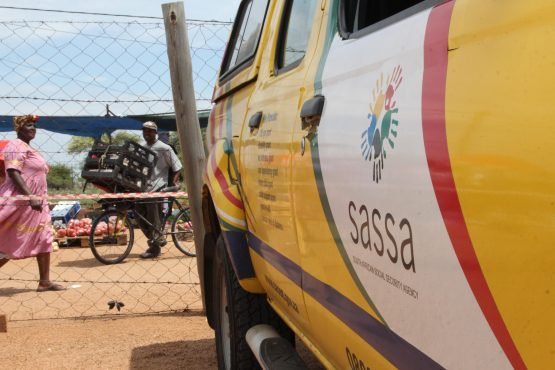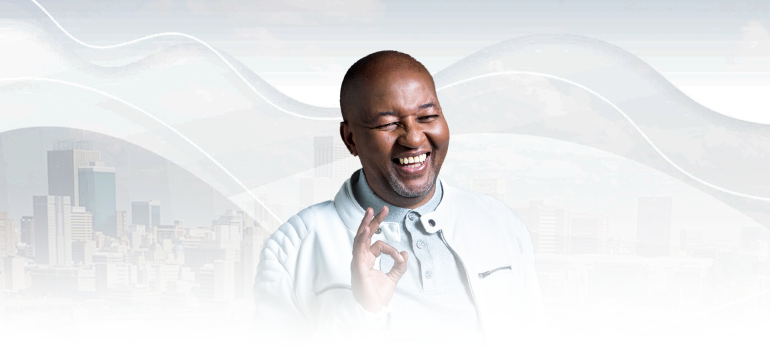Ramaphosa has been handed a Chinese marriage and a technical recession – where does he go next?
The Chinese might have the balance sheet – but it is the Germans that have a plan…
From a distance, not much exists to link Cyril Matamela Ramaphosa and Gerd Muller. One – a man whose political story is intimately intertwined with the development of the Republic of South Africa – has recently found himself elevated to the most important political position in the African continent. Core to this responsibility is the need to ensure that not only South Africa’s economic fortunes improve but also that it uses its more advanced economic system to drag up other African countries. The problem however with the African continent is that the closest it has come to holistic economic integration is when a morally-dubious dude called Cecil John Rhodes apparently bought into the idea of the Cape to Cairo trade route. But – thanks to the vagaries of colonisation, civil wars, political turmoil and downright incompetence – the continent with the greatest economic potential has remained capitalism’s greatest failure.
Gerd Muller on the other hand – is the type of dour German politician that some might occasionally confuse with his more prominent countryman – the football player who distinguished himself at Bayern Munich. But I digress; let’s get back to the politician. Muller currently serves as a Minister in the German government. His political portfolio – as Minister of Economic Cooperation and Development comes after he served as the Parliamentary Secretary of State for Food, Agriculture, and Consumer Protection. And these portfolios mirror some of the biggest challenges facing Cyril Ramaphosa in South Africa today.
Since he took office on Valentine’s Day week in 2018, Ramaphosa has had to live up to the reality that for a country whose economic trajectory has been in stagnation for such a long time, no amount of sleeping over it would deliver a new dawn on our economic prospects. This week, the latest GDP numbers indicated that the country has formally slipped into a technical recession for the first time since 2009 (yes, that means even crazy days of the Zuma years did not see consecutive quarters of economic decline).
Leading the decline was the agricultural sector which fell by 29,2% in the quarter under review. In addition, there were declines in the transport, storage and communications industries which meant that even the industries that showed marginal growth could not prevent the slide into the recession. To add the recent rise in unemployment to the mix gives a picture of a nation that should be grateful we have somehow avoided social unrest from those who bear the real brunt of this catastrophe. One of the toughest tasks in the aftermath of the Nasrec conference was being the voice of skepticism/reason in the room dominated by euphoria. For example, a few of us questioned the essence of the Ramaphoria and the myth that it would lead to a transformation in the country’s economic prospects. My skepticism, in particular, was fuelled by the fact that with the exception of the identity of the man who read the State of the Nation Address, nothing fundamental in the country’s economic architecture has changed since last year. Rather, in the desire to embrace the political turning point we conflated that with a mythical economic Rubicon that was not backed by actual reforms. When the Budget Speech was delivered by Malusi Gigaba, the opportunity to chart a path towards fundamental economic reforms was replaced by a meaningless quote from a guy called Kendrick Lamar which also sold us false dreams.
Whilst there are particular correlations and parallels between the politics and the economics, it is now clear that the New Dawn is primarily a political rather than an economic reawakening of the nation. To this end, the time to have difficult conversations is now imminent. In the middle of 2017, whilst South Africans were trying to work out if Nasrec was even going to happen, Gerd Muller (the politician, not the soccer player) unleashed his ‘Marshall Plan with Africa’. The essence of the plan is to usher in a new era of cooperation between Germany and Africa. The plan is underpinned by 4 Cs – combatting Corruption; fostering Cooperation; Concentration and Conditioning. Quite crucially it identifies 3 key pillars that need to be addressed if the plan is to succeed. These are economic activity, trade and employment; peace, security and stability; democracy, rule of law and human rights. In addition to these pillars, the Marshall Plan identifies 4 key foundations – food and agriculture; protection of natural resources; energy and infrastructure; health, education and social protection.
A cursory reading of these issues seems to gravitate towards the key limitations of the South African economy. Quite importantly, the Muller Marshall Plan identifies a few key issues that will form part of the imminent pact between Germany and Africa. The importance of this approach is that by narrowing down key issues into the blueprint the plan has been made relatively accessible and focused on issues that matter most to people. The advantage of such an approach is that the more understandable the framework, the easier it will be to get social buy-in – simply because people will at least have an idea of what we are trying to achieve.
South Africa by contrast, relies on the rather dense National Development Plan as its universal blueprint for economic and social development. Unfortunately, Ramaphosa is then surrounded by a Cabinet of individuals who strangely decline to exhibit any form of individual or collective understanding of how the NDP is actually evolving and whether we are on track with any of its ideals. The risk for Ramaphosa here is that if his legacy and rhetoric is to be centered around the NDP he will gravitate towards saying too much and doing too little. This then leads to the legitimacy of his pronouncements that the economy is being fixed being seriously undermined.
Perhaps the most disturbing turn of events this week was the pronouncement by the Minister of Finance – Nhlanhla Nene – that they didn’t see this coming. Bizarrely, he then alleges that the government is working on a stimulus package to revive the economy. Naturally, if the entire Treasury itself isn’t even capable of predicting the country’s economic trajectory one has to wonder on what basis can they be expected to craft any recovery plan.
Other commentators have intimated that since President Ramaphosa has been in office for just 6 months then he cannot be held accountable for the economic malaise. Such a narrative is naturally laden with a convenient omission of pertinent facts. The reality is that Ramaphosa served as the ANC’s second-in-command for the 5 years leading up to Nasrec. And to be fair – given his ‘business pedigree’; he was easily the one member of Cabinet who could have been relied on to assist in crafting and directing the country’s economic pathway. To then absolve him of his complicity is rather disingenuous as he was literally one faulty heartbeat away from running the country during those 5 years. More importantly, no lesser an authority than the ANC itself subscribes to the idea of collective accountability and consensus. To this end then, if we are to absolve the President of his complicity in the current flux and simply relegate it all to the travails of the previous administration; we will similarly have to apply the same warped logic to the current administration where essentially only 1 person is accountable and everyone else serves as a casual, disinterested observer. Clearly, this is not the case.
Well yes and no. Given the historical problems between Europe and the African continent, there is absolutely no merit in simply reading yet another developmental blueprint commissioned from the West and adopting it blindly. And since Ramaphosa and the ANC have nailed their mast on the Chinese colors, there is no political appetite for a dalliance with the Germans anyway. But also quite importantly, China’s status as a Communist regime with a tentative commitment to human rights for example also requires informed skepticism in how we engage with them. To this end, Ramaphosa may be well advised to adopt the Muller approach of identifying the issues that he can address in the immediate term; focus on these and let the bureaucrats deal with the rest of the issues away from the public glare where commitments made may be beyond the reach of implementation.
The benefit of narrowing down the conversation to a few items that he thinks he can tackle in the short-term is that for once there will be some understanding across society on what the immediate focus areas are. As it stands right now, no-one knows what currently takes priority in his in-tray. For example, a few weeks ago there was an announcement that yet another inter-ministerial task team was looking at ways to alleviate the impact of fuel increases on consumers. Then bizarrely this week, we were granted a once-off insulation from the monthly fuel price adjustment. Whether this is the resolution from the inter-ministerial team is unclear as only the Department of Energy is talking about it. But more disturbingly, given that the most significant inputs into the fuel price – Opec mood swings and exchange rates – are clearly beyond the control of our politicians – one can only wonder why this insulation package was granted now and whether we can pray for another one next month.
And even worse, the announcement of the technical recession has gone straight into the heart of one key input in the petrol price determination – the exchange rates. Does this mean the Department of Energy has another insulation package ready for us? Absolutely nobody knows! This is just one example of the lack of clarity regarding what the big idea is that the country is chasing. And given the fact that his competition – the Democratic Alliance and the EFF are fixated on their own forms of economic policy that ranges from absolutely non-existent to an envisaged socialist utopia – Ramaphosa can’t lose much by narrowing down his focus. We have all woken up from the new dawn, now we need a new deal.






















